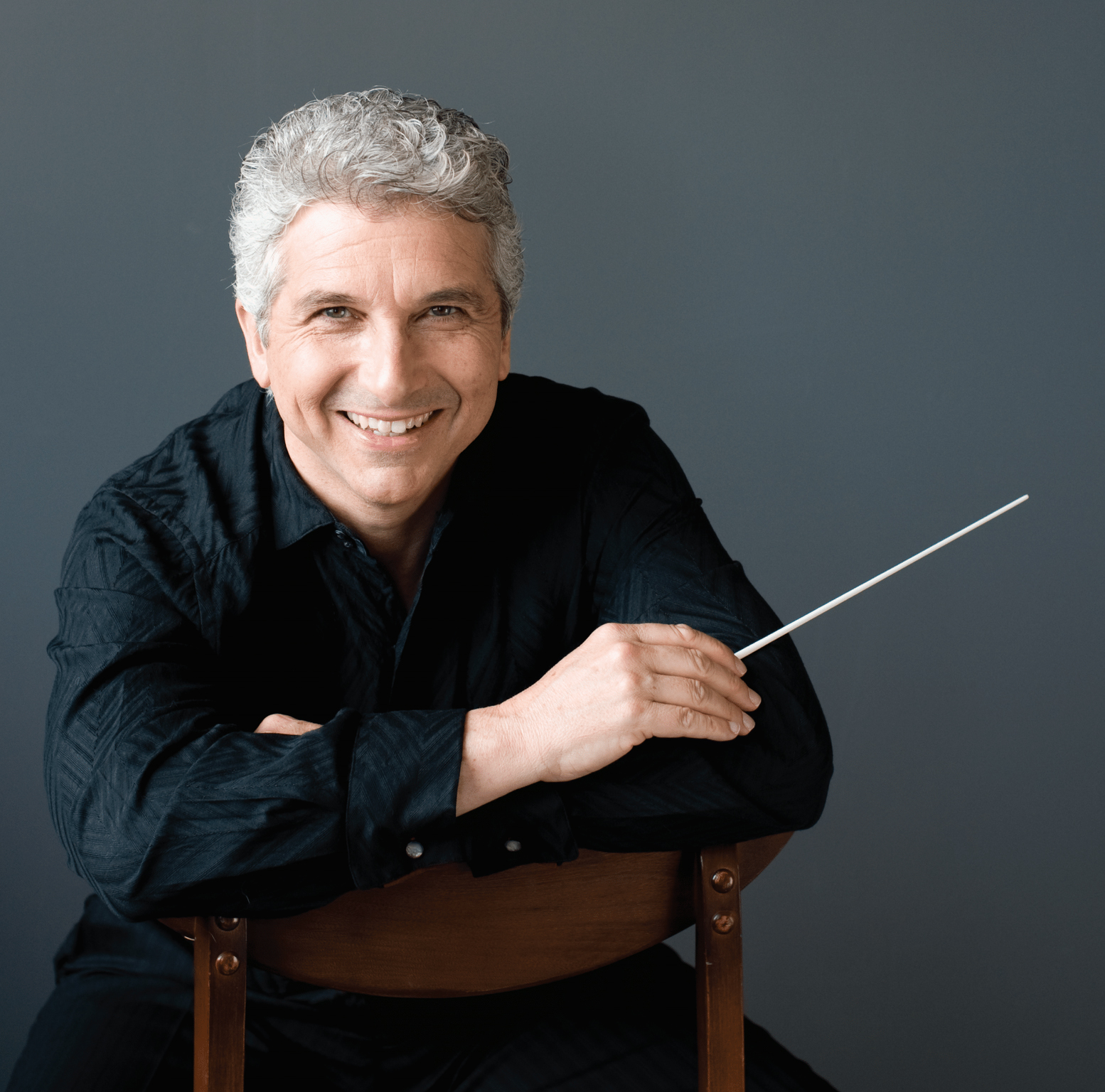Busier than ever, and figuring it all out as he goes
By Peter Alexander May 1 at 9:40 p.m.
“The biggest difference is that I’m not traveling,” says Michael Butterman, conductor of the Boulder Philharmonic.

Michael Butterman, speaking by Zoom from his home office in Shreveport, La.
He is speaking from his home in Shreveport, La., where he is spending his time with his wife and daughter during the COVID-19 pandemic. During a normal year, the Shreveport Symphony, with the Boulder Phil, is one of three orchestras he leads. He is also conductor of the Pennsylvania Philharmonic, a regional orchestra that presents educational programs and concerts in central and southeastern Pennsylvania. When you add in guest conducting gigs, that creates a lot of travel.
“Typically about 10% of my time is spent performing and in rehearsals, and the other 90% is divided between administrative details, phone calls and emails,” Butterman says. “And studying scores, which I do at home. That’s what you do as a conductor, more than wave your arms around: look at dots on the page and try to figure out what they’re all about.”
When he first found himself at home full time, Butterman thought he would have lots of time for new musical projects. “When this first started, I thought, this is going to be a blessing in disguise,” he says.
“There’s so many scores that I haven’t cracked the code of yet, or things that are coming up that I want to get a jump on. And there’s all these other things, like practice piano—two hours a day even, which would be about 1 hour and 45 minute more than I had been doing for the past 10 years. All of that sounded like I could make good use of the time.”
The reality turned out differently, as all three orchestras had planning to do for the post-pandemic world. Since no one knows what to expect, or when, the planning had to encompass various scenarios. “I have found myself occupied with re-inventing what we do in these orchestras,” Butterman says.
“First dealing with the immediate fallout of all of this. How we’re going to re-budget for the rest of the season. Then there’ve been issues of how to reschedule next season, how many plan Bs and Cs and Ds do we need.”
The planning had to encompass several unknowns: when and under what conditions will they be able to invite people back into concert halls? Will there be a maximum occupancy imposed? And when will their audience be willing to gather in a full auditorium? Performing arts groups are grappling with those questions world-wide, the Boulder Phil as much as the Chicago Symphony or the Metropolitan Opera.
“More immediately, how can we continue to be a presence in our communities and in the lives of our patrons?” Butterman asks. The obvious answer is through the sharing of performances online, but most American orchestras were not well prepared for that possibility, both because of the lack of archival material in hand and because of union contracts that limit how electronic material can be shared.
“Most European orchestras were video recording all of their concerts, for archival purposes or for broadcast,” he explained. “But most American orchestras—no.”
The Boulder Phil has a few performances on video, and eventually those will be made available one way or another. And going forward, the possibility of streaming concerts is something that almost every orchestra and performer is thinking about. But it takes serious equipment for that to work above a very rudimentary level.
In the meantime, Butterman is doing what he can to keep the orchestras alive online. For all three he has already posted some combination of conversation and performance. You can see these posts for the Boulder Phil, Shreveport Symphony and the Pennsylvania Philharmonic online. Numerous posts are available on Butterman’s Youtube channel.
Negotiating this new world has taken more of Butterman’s time and energy than the familiar world of rehearsals and concerts. “I find myself busier now than I was before,” he says. “I knew how to do everything before. I knew how to study scores, I know how to plan rehearsals, I knew where to be at what time. And now we’re just figuring it out.”
Like everyone else these days, he is facing new tasks at home, too. “I do a lot more laundry than I ever did before,” he says, laughing. “Taking more walks, riding my bike—that’s all good.”
His daughter is in high school, so he does not find himself facing the homeschooling challenges that parents of younger children do. “I don’t think in some ways my role has changed much,” he says. “In fact, in many of the classes she’s studying now I’m not going to be much help, other than I’m a decent proofreader of English sentences.”
He and his wife, violinist Jennifer Carsillo, have already posted one performance on Youtube, and he hopes to post more performances. Making music is important for him.

Michael Butterman and violinist Jennifer Carsillo, performing on Youtube from their home in Shreveport, La.
“I really do hope to play more piano, because it allows me to create,” he says. “I’m never able to produce sound as a conductor, but at least I’m around sound that I have some influence over. But now nothing. So I have to get back to pressing keys and making sound myself. There is joy in that, of course, and that will make me a better musician the more I do “
The current crisis has led Butterman, like many musicians around the world, to think about the place of music in our culture, both in the current situation and beyond. “To put it bluntly, does it matter that we’re not able to get together and play a Beethoven symphony right now?” he asks.
“I think it does to some extent, but I also understand the larger context in which all of this is taking place.”



 Central City Opera (CCO) was in a better position than most summer festivals when the Coronavirus pandemic hit.
Central City Opera (CCO) was in a better position than most summer festivals when the Coronavirus pandemic hit.
 The main question became the timing of the announcement. “We decided to wait until we could wait no longer, and see where we were at that point,” Pearce says. “We had to roll back probably 30 days from the first day that we would be working in Central City—in the time frame when people would have to make travel arrangements, giving people at least a month’s notice that they were not going to be employed with us this summer.
The main question became the timing of the announcement. “We decided to wait until we could wait no longer, and see where we were at that point,” Pearce says. “We had to roll back probably 30 days from the first day that we would be working in Central City—in the time frame when people would have to make travel arrangements, giving people at least a month’s notice that they were not going to be employed with us this summer.

 The other side of the CMF organization is the Center for Musical Arts, the music school in Lafayette that merged with the festival several years ago. Coincidentally, they had already started offering online lessons.
The other side of the CMF organization is the Center for Musical Arts, the music school in Lafayette that merged with the festival several years ago. Coincidentally, they had already started offering online lessons.


 Colorado MahlerFest has announced a virtual festival to run May 13–17, with many of the online offerings available beyond those dates.
Colorado MahlerFest has announced a virtual festival to run May 13–17, with many of the online offerings available beyond those dates.

 This year’s schedule was to have featured Rodgers & Hammerstein’s Carousel, Verdi’s Rigoletto and Purcell’s Dido and Aeneas. All three will be presented in the summer of 2021.
This year’s schedule was to have featured Rodgers & Hammerstein’s Carousel, Verdi’s Rigoletto and Purcell’s Dido and Aeneas. All three will be presented in the summer of 2021.



